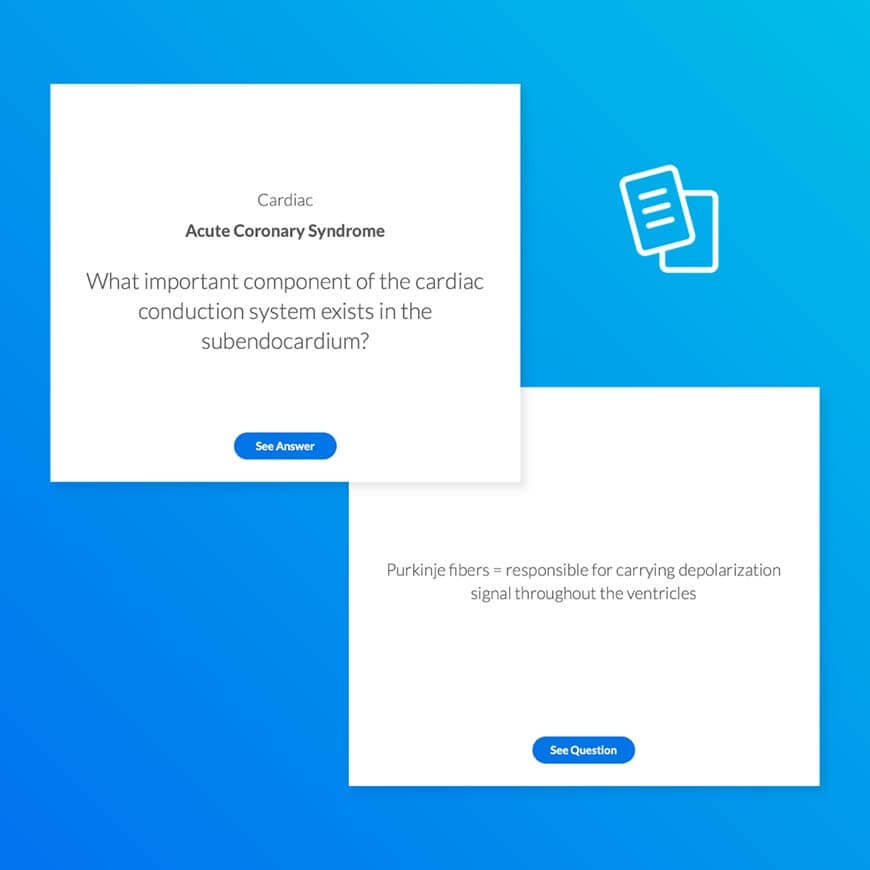There’s something quite wonderful about getting through a heavy pile of flashcards—it’s almost as if you’ve just crossed the finish line of a marathon. As you began looking at them, you knew it would take some endurance to make it all the way through, and maybe you even gave yourself a few motivational speeches here and there to help keep going, but once you set that last flashcard down it was a magical moment . . . until you had to start them all over again. Sigh.
The feeling of achievement that comes from completing a flashcard set is the exact reason why you love them, but they hold a practical purpose as well: numerous study programs use them as a key piece to solving the puzzle that is acing your shelf exams, NBMEs, and the USMLE. So if you use flashcards as much as we think you do, here are five tips to make sure you’re using them to their full potential.
1. Commitment is essential
Some programs, like OnlineMedEd, already include flashcards in their study and learning schedules. But if not, in order for them to work effectively you must commit to going through the sets multiple times. If you spend an hour going through a set, but then never pick them up again, you just wasted an hour of your time because there was no repetition or way for the content to take root in your brain.
2. Say your answers out LOUD
By saying the answer out loud it, you are verbally committing to it before checking it, and therefore less likely to run into illusions of competence (when you mistake recognition for recall).
3. Study your flashcards from both sides
To increase the strength of the neural pathways you’ve built, study the flashcards from two different angles. This ensures that you fully understand the concept from every direction.
4. Spaced repetition
Some flashcard programs already incorporate spaced repetition, but for those that don’t, or if you’re making your own, it’s beneficial to incorporate it. Spaced repetition is a learning technique where you increase the intervals of time between reviewing previously learned information. For example, if you get a card right, put it in a different pile than where you would put a card you were struggling with. Then review the cards in each pile accordingly.
5. Stay engaged
If you begin to feel like reviewing your flashcards is becoming mindless, then maybe it’s time to take a five-minute break. When you read each card you should really stop to think about it. Saying things like “I know this,” or “I don’t know this,” and recalling instances where you’ve used or seen the concept can help you stay engaged.



